6 Supplements That Can Help You Burn Belly Fat Fast, Doctors Say

Cardio, crunches, a calorie deficit—what it takes to lose belly fat is no big secret. But actually getting rid of that stubborn weight and keeping it off is another story. That’s because the fat that accumulates in your midsection is often visceral fat, which surrounds internal organs like the stomach, liver, and intestines, as opposed to subcutaneous fat that lies just beneath the skin.
“Visceral fat makes more of the proteins called cytokines, which can trigger low-level inflammation, a risk factor for heart disease and other chronic conditions,” explains Harvard Health Publishing. “It also produces a precursor to angiotensin, a protein that causes blood vessels to constrict and blood pressure to rise.”
If you’re finding it difficult to drop belly fat, despite maintaining a healthy diet and exercise routine, experts say taking certain supplements may be able to help. Keep reading for their expert advice.
RELATED: 10 Best Ways to Strip Away Your Unhealthiest Belly Fat, According to Doctors.
1
Berberine
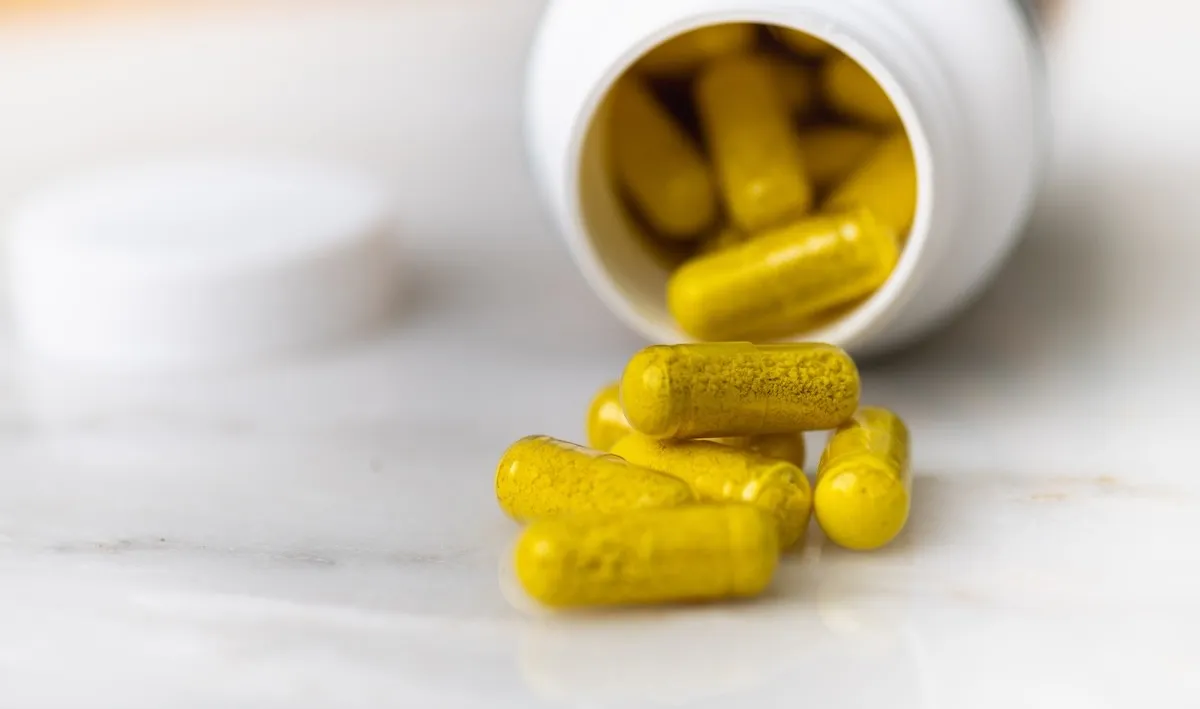
Until recently, berberine was a relatively unheard-of supplement. But in recent months, it’s garnered the nickname, “nature’s Ozempic.”
“It has its roots in traditional Chinese and Ayurvedic medicine, primarily for its known antimicrobial and anti-inflammatory properties as well as its ability to regulate blood sugar,” Trista Best, RDN, LD, a registered dietitian at The Candida Diet, previously explained to Best Life.
And when it comes to belly fat, both of these factors are key drivers. Seema Bonney, MD, founder and medical director of the Anti-Aging & Longevity Center of Philadelphia, said in an interview earlier this month that visceral fat “makes inflammatory proteins that damage blood vessels as well as tissues and organs inside the body.”
Additionally, when your blood sugar is high, your body produces more insulin, which then causes your cells to store more fat.
Berberine can also speed up your metabolism by activating the AMP-activated protein kinase (AMPK), a cellular enzyme that “is often described as the body’s ‘master switch’ of metabolism and energy regulation,” Michael Chichak, MD, medical director at MEDvidi, previously told Best Life.
In fact, a 2017 study found that berberine “significantly” increased AMPK activation.
2
Protein Powders
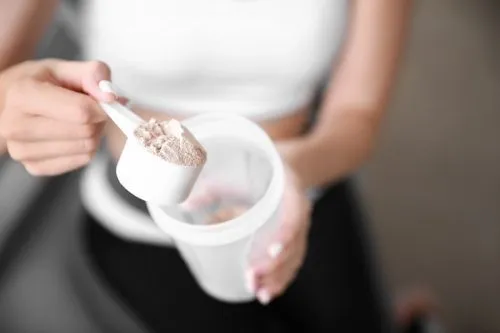
Matt Dustin, a nutrition coach at Garage Gym Reviews, suggests protein powder if you’re trying to shed belly fat because it “helps control appetite, preserves muscle during weight loss, and raises your daily energy burn slightly through digestion.”
One option is whey protein, a dairy-based supplement that’s been shown in studies to help lower cholesterol and blood pressure. Like berberine, it can also manage blood sugar and reduce inflammation.
Elliott Torsney, RDN, a registered dietitian and certified diabetes educator at Den of Fitness, previously told Best Life that grass-fed whey protein contains all the most important essential amino acids with less saturated fat. You can get other expert-approved recommendations for weight-loss-friendly protein powders here.
RELATED: 4 Belly-Blasting Workouts That Burn Major Calories—No Sit-Ups Needed.
3
Leucine
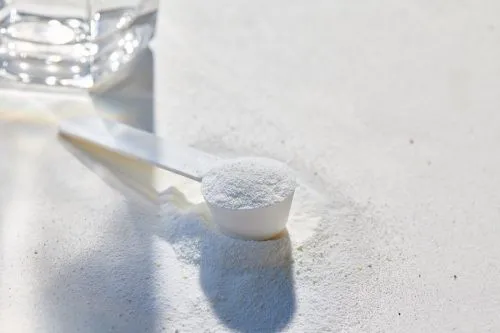
Erin Barrett, PhD, director of product innovation and scientific affairs at Shaklee, is also a proponent of protein powders for weight loss. However, she points out that “the body needs key amino acids to support the protein.” And her favorite amino acid is leucine.
“While all amino acids are needed to make protein in the body, leucine is the only one that directly triggers muscle protein synthesis,” she explains. “This means that it activates the process to help your body preserve lean muscle while prioritizing fat loss, which keeps your metabolism running smoothly.”
If you’re working to lose weight, such as belly fat, leucine is a great go-to for supporting fat loss while protecting lean muscle,” she continues. “When you reduce calories, your body typically breaks down both fat and muscle for energy. Losing muscle during weight loss is problematic because muscle burns more calories, even at rest.”
“Preserving muscle helps you stay strong, energized, and active, which is essential for maintaining both weight loss and overall health,” Barrett concludes.
4
Probiotics
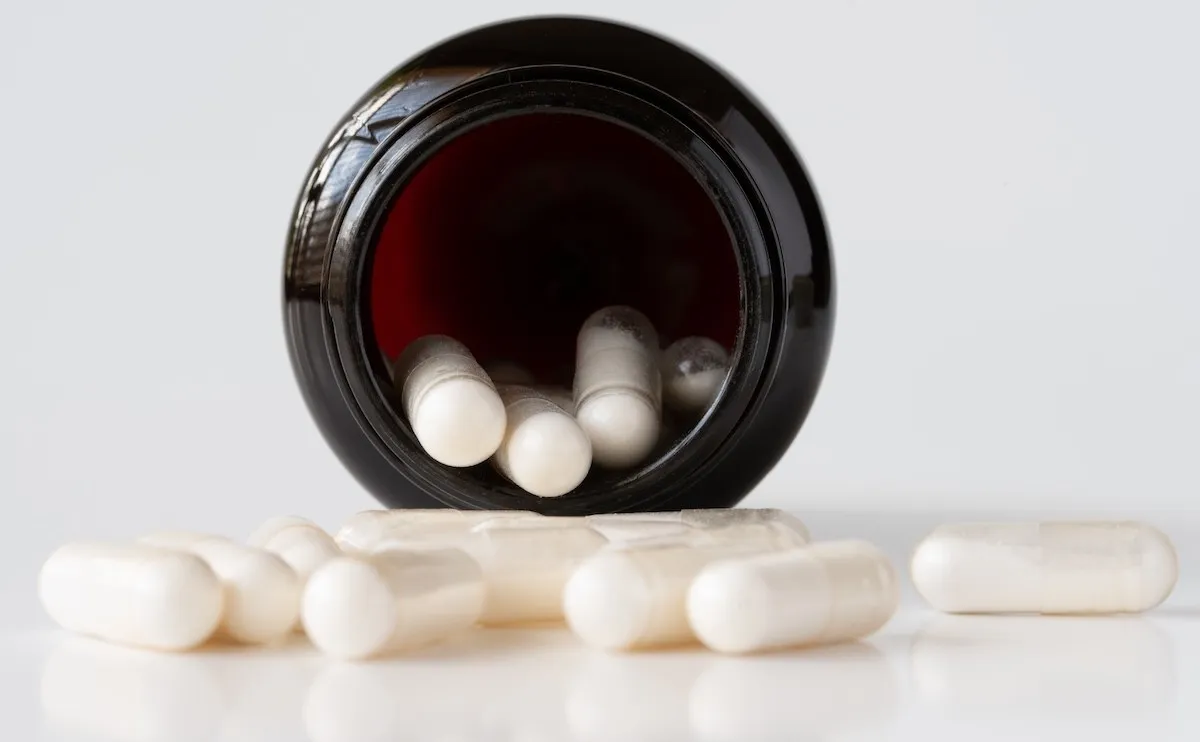
A healthy gut can improve everything from your digestive health to your brain health, but it can also assist with weight management. And probiotics are one of the main lines of defense against gut disruptions.
To this point, a 2021 study found that obesity and obesity-related diseases “are not only the result of genetic factors, eating habits, or lack of physical activity; It has also been proven that the Intestinal Microbiota (IM) is an environmental factor in its development.”
One of the most popular probiotics for weight loss is Akkermansia, as Raj Dasgupta, MD, an ABIM Quadruple board-certified physician specializing in internal medicine, pulmonology, critical care, and sleep medicine, and a medical reviewer for the National Council on Aging (NCOA), previously told Best Life.
“Akkermansia muciniphila is a probiotic that could help with weight loss by strengthening the gut lining, reducing inflammation, and boosting the production of beneficial substances like butyrate, which can help control appetite and improve blood sugar levels,” he explained. “This could help regulate appetite and improve glucose metabolism, potentially helping with weight management.”
RELATED: 9 Best Weight-Loss Teas, According to Nutritionists.
5
Green tea extract
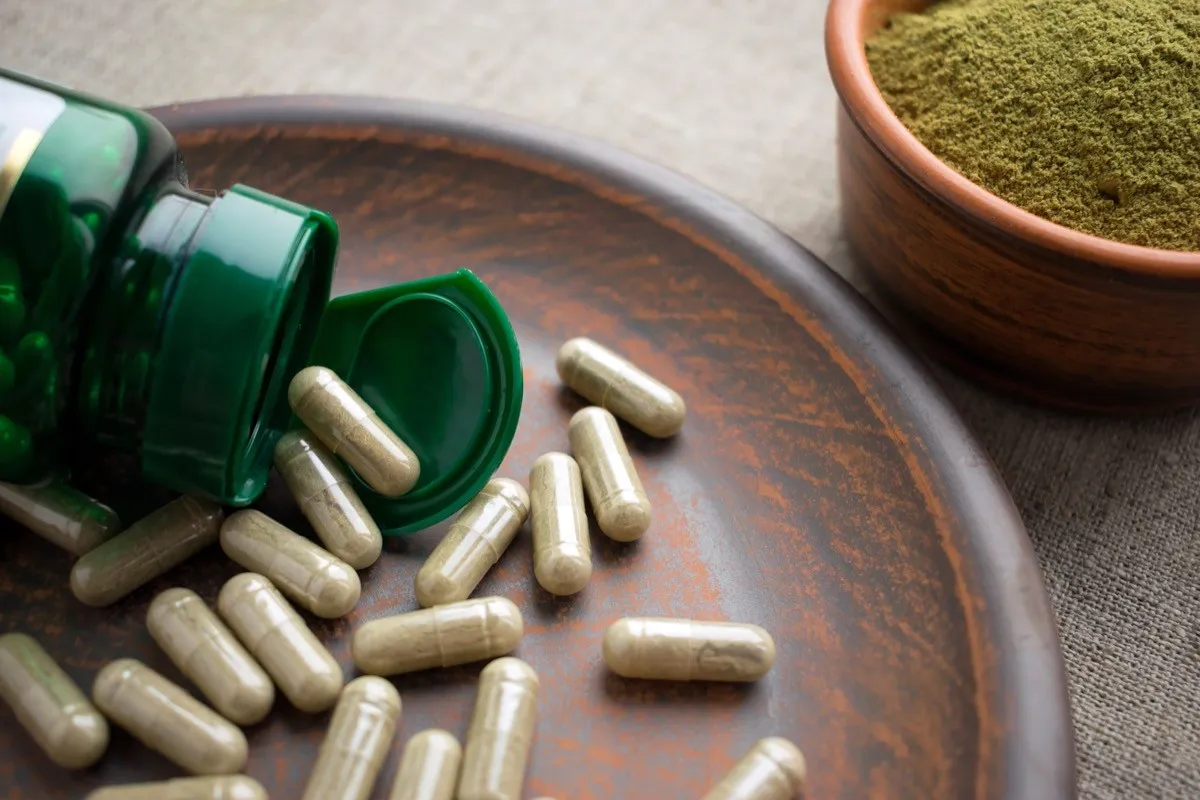
Dustin notes that caffeine can help with losing belly fat because it increases energy, slightly boosting calorie burn. He says green tea extract can work similarly, but it has the added benefit of containing epigallocatechin gallate (EGCG), a compound that reduces inflammation and supports fat oxidation.
To his point, a 2016 study found that after women with central obesity took a green tea extract supplement for 12 weeks, they exhibited “significant weight loss, reduced waist circumference, and a consistent decrease in total cholesterol and LDL plasma levels without any side effects or adverse effects.”
The researchers theorized that the weight-loss effects could have been due to “ghrelin secretion inhibition.” Ghrelin is a hormone that tells your brain if you’re hungry or full.
Additionally, research has shown that EGCG activates AMPK, much like berberine.
6
Psyllium Husk
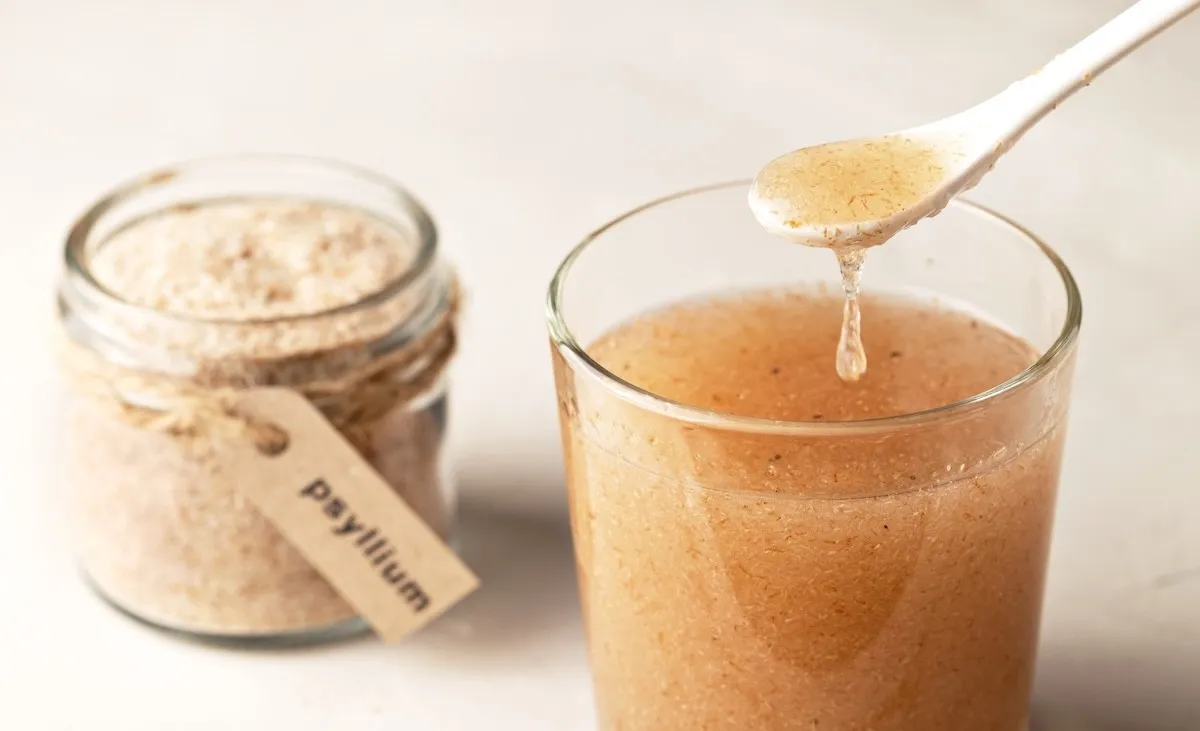
Psyllium husk has become a very trendy weight-loss supplement as of late, but most experts agree that this source of soluble fiber is not all hype.
“When ingested, it absorbs water, causing it to transform into a gelatinous-like substance that swells in your stomach,” Brynna Connor, MD, healthcare ambassador at NorthWestPharmacy.com, recently told Best Life. “Your body takes longer to digest this substance, which is why it subsequently causes you to feel full for longer.”
“In addition to feeling fuller for longer, the longer digestion period also helps limit food cravings and curbs appetite, which can lead to consuming fewer calories and, as a result, help in losing weight,” she added.
RELATED: Doctors Discover the #1 Workout Routine to Burn Fat.
But remember, supplements alone won’t strip away belly fat.

“No supplement will target belly fat directly, but some can support fat loss by improving metabolism, energy, or your response to stress,” shares Dustin.
“Still, none of these work without a solid diet, strength training, and sleep,” he adds. “Supplements just support the process, as you can’t out-supplement a calorie surplus or inconsistent routine.”